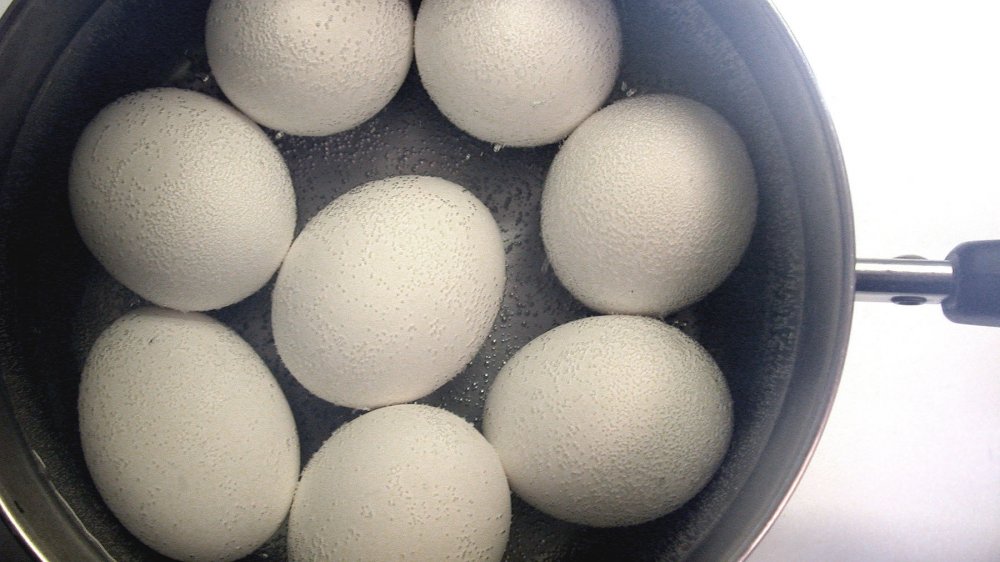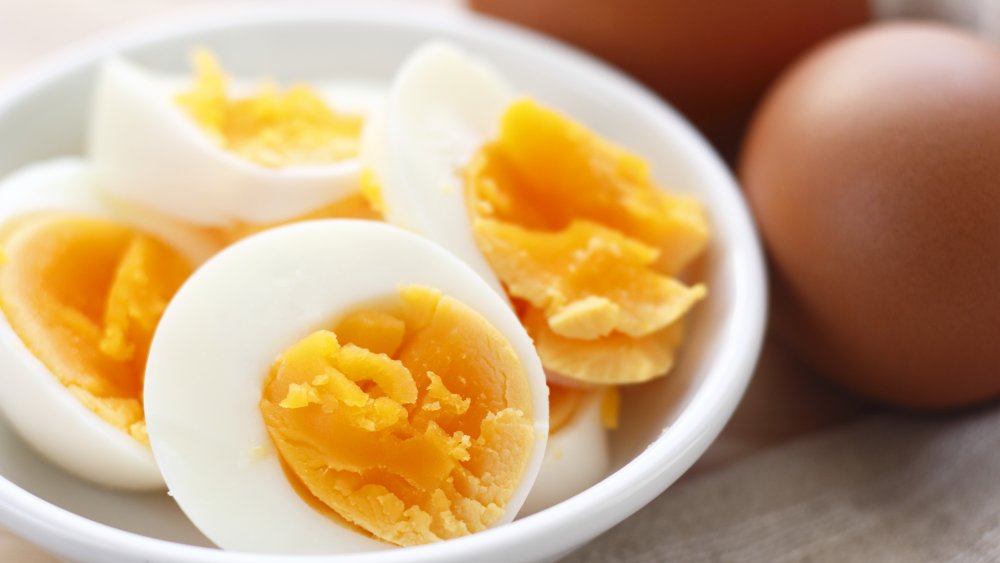This Is How Long Hard-Boiled Eggs Should Really Cook
A perfect hard-boiled egg is maddeningly difficult to accomplish. Though it seems like since there are just two ingredients that go into the making of hard-boiled eggs, and one of them is water, it ought to be easy enough to come up with a perfect specimen. But that's not entirely true. Cracked shells and grey yolks are some of the many pitfalls of egg boiling.
The timing is everything. And of course, the amount of time a hard-boiled egg should cook depends, to some extent, on personal preference, but there is at least some consensus from egg-lovers everywhere.
A number of online resources seem to suggest that boiling an egg for seven or eight minutes is the sweet spot (Via The Stay at Home Chef, Food Network, Downshiftology). This will get you a creamy, soft yolk with the center still slightly moist, and it can hold its shape well. Anything less than that will result in a runny yolk, which will be closer to a soft-boiled egg. A four-minute cook will get you a runny yolk, essentially a soft-boiled egg. Eight or nine minutes will result in a firm, solid yolk, without it being overcooked.
You shouldn't cook your hard-boiled egg longer than 10 minutes
Anything north of 10 minutes, though, will result in a chalky yolk and may even wind up giving you one of those dreaded greenish-grey rings around the yolk.
One of the key steps of cooking a hard-boiled is actually the step that stops the egg from cooking indefinitely. Even if you turn the heat source off and pour out your egg water, the eggs will continue to cook as a result of the residual heat. This means that even if you have the perfect hard-boiled egg when you turn off the fire, by the time you get around to peeling it, it will have cooked for too long.
The best way to prevent this from happening is to put your eggs in an ice bath immediately after turning off the stove. This will both stop the cooking process and make it easier to peel the eggs, as peeling a chilled egg is not as much work as peeling one that's still warm (via Tablespoon).

